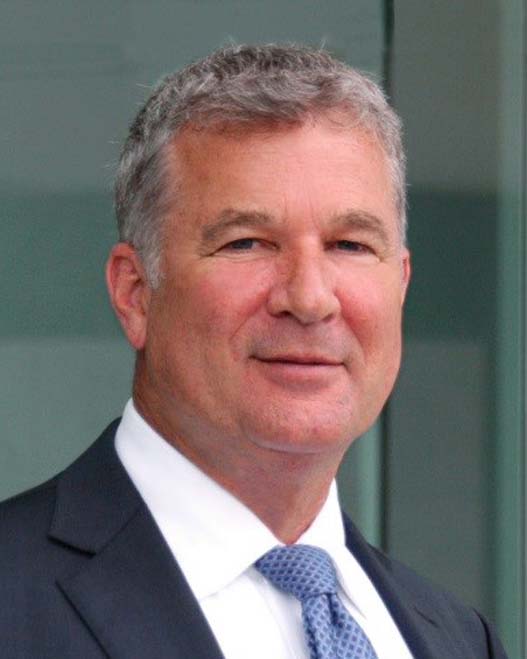
Thomas M. Vertin has served as President and Chief Executive Officer of Pacific Mercantile Bancorp since January 1, 2016. Mr. Vertin joined Pacific Mercantile Bank as President of the Commercial Banking Division in September 2012. Additionally, he assumed responsibility for central and bank operations, and as interim chair of the bank’s executive management committee. Mr. Vertin’s 25 years of management experience includes Executive-in-Residence at Carpenter & Company, and 18 years with Silicon Valley Bank — SVB. During his tenure with SVB, Mr. Vertin served in the positions of Chief Operating Officer, Head of California Division, Head of Sales and Service bankwide; he also lead three turnarounds: Southeast region, San Francisco Bay region, and the nationwide asset-based lending group. His responsibilities included the client service operation, product advisory sales — investments, cash management and international trade services — currency trading, SVB securities and SVB Asset Management. His sales teams were responsible for essentially all of the bank’s noninterest income — 30% of SVB revenue. Earlier in his banking career, Mr. Vertin also taught finance for eight years at San Jose State University. Prior to his career in banking, he served for three years with the World Health Organization in Geneva, Switzerland.
In this exclusive interview in the Wall Street Transcript, Thomas Vertin delivers an in depth review of his turnaround of the bank.
One point of differentiation for Pacific Mercantile is their innovative use of financial analysis for the customer. “…What has caused us to be more effective and more efficient in client acquisition is something that we call Horizon Analytics. If you can imagine companies with $10 million to $70 million in revenue, typically, they don’t have a board of directors. One company of ours is two guys who graduated from high school with a truck and now have a $25 million trucking business. Another company was a guy that graduated from high school with a lawn mower and now has a $70 million landscaping business. These guys don’t have boards of directors. They have as advisers a lawyer and a CPA. Typically, the CPA is advising them on aggressive tax avoidance. We have addressed a void that has been in banking now for the last 20 years, and that is the void of giving good financial counsel.”
The bank creates an interesting road map for the customer. “…We deliver something called Horizon Analytics, which is a book with two chapters. The first chapter compares the company and their financials with their peers. This is often information that most of these guys haven’t seen in the past, and we can get really specific because we put together a database that’s quite clever. We can get really specific regarding region and size. That’s chapter one of Horizon Analytics, and that really interests the companies that we are dealing with.”
And the bank goes above and beyond that analysis. “Chapter two is about what they aspire to. In the case of the trucking company or the case of a distributor, they may aspire to sell that company someday. If, for example, a client were to say, “I’d like to sell my company for $10 million.” We might respond with, based upon our analysis of your company today and the multiples in your industry, we think your company is probably worth around $4 million, and here’s the roadmap to get you to $20 million.”
To get the full plan of action for delivering real returns in 2018 to investors in Pacific Mercantile, read the full interview in the Wall Street Transcript,
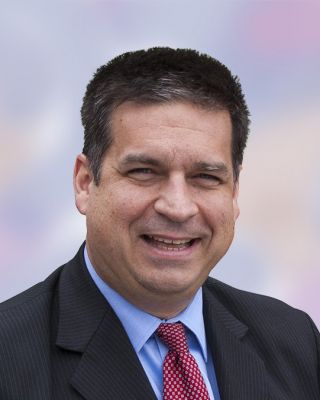
Jeffrey K. Ball is the Founder of Friendly Hills Bank in Whittier where he currently serves as President, Chief Executive Officer and Director. Mr. Ball serves on the board of the Federal Home Loan Bank of San Francisco and Data Center, Inc., a bank technology company based in Hutchinson, Kansas, where he also serves as Chairman of the Audit Committee. He is a member of the Executive Committee and board of directors of the American Bankers Association where he serves as Chairman of their Government Relations Council Administrative Committee and as a member of their Grassroots Committee. He is a past Chairman of the California Bankers Association where he currently serves on the board of directors and is Chairman of their Federal Government Relations Committee. In his exclusive interview with the Wall Street Transcript, Mr. Ball details his strategy for building and growing a community bank in Southern California.
One aspect is the growth of new unregulated online financial services: “…private lenders serve the higher-risk aspect of our market. As a commercial bank operating under a regulatory environment, we are traditionally more on the lower end of the risk curve, and often, there have been these private entities that have been able to serve the higher end of the risk curve. So you might have a business that is struggling and is not bankable, and we can help place them with some of these other lenders that are able to serve them.”
An opportunity for growth, especially in a state where recreational marijuana was just legalized, is the ability to transact in cryptocurrencies. “When we are talking about alternative currencies, there are really two forms that we are looking at. Number one is a stored value, and that is when you are holding assets in these types of facilities where there is a true stored value so that the money that you invest will be safely stored and reachable at a future point in time. The other aspect of it, of course, is on the payment side. And that is where the payment stream with the ability to transfer payment in a safe and secured environment is a value.”
The tipping point will be achieved when transactions are cheap and easy. “So I’ve looked at it from both of those standpoints. And I think when we are talking about cryptocurrency, we have to think about it more under that second umbrella, which is about more safely and securely transferring payments. And that’s where I think the great opportunity will be for all banks, and that includes community banks as we look toward different ways that we can provide more efficient banking services for our clients.”
Read the complete interview in the Wall Street Transcript.

Laurans A. Mendelson is the Chairman of the board and Chief Executive Officer of HEICO Corporation. He is also a member of the board of governors of the Aerospace Industries Association in Washington, D.C.; immediate past Chairman of the board of trustees, and a member of the executive committee and the Society of Mount Sinai Founders of Mt. Sinai Medical Center, Miami Beach; and Trustee Emeritus of Columbia University in the city of New York. Mr. Mendelson was awarded the John Jay Award for Distinguished Professional Achievement by Columbia College, is a recipient of Florida’s Greater Hollywood Chamber of Commerce 1998 Private Sector Community Service Award, and was a recipient of the 1999 Ernst & Young Entrepreneur of the Year Award and the Greater Miami Aviation Association’s Highest Award, the Wright Brothers Award. He has also been a distinguished guest lecturer in The Executive Forum of the MBA program at Florida Atlantic University, College of Business since February 2000. Mr. Mendelson received his B.A. degree from Columbia College in the city of New York in 1960 and his MBA degree from Columbia University Graduate School of Business in 1961.
In this exclusive October 7, 2016 interview with the Wall Street Transcript, Mr. Mendelson explained how his company services the F-16 aircraft for global military defense.
“ACT is the largest Lockheed Martin F-16 licensed repair and distribution company, and has a very good reputation. We also own a company called Blue Aerospace, which supplies the foreign market and is also licensed by Lockheed. In some cases, they can work together. Blue will be able to broaden ACT’s reach. It’s a win-win for both companies and also for our customers. We can provide them with a larger base, with faster turnaround service, with more products. And it really was a very natural fit for these two companies to work together.”
Laurans Mendelson explains the upside to this business unit: “…the F-16 is a workhorse of many, many nations throughout the world. F-16s or any aircraft, particularly military, burn parts, as they are under very high pressure and stress. They need constant repair, constant overhaul. We think that this is a very strong business.”
You can read the complete interview with Laurans Mendelson in the Wall Street Transcript.

Jim Brush was named President and CEO of Summit State Bank in April of 2016. He has served on the Summit State Bank board of directors since 2009 and most recently was the Chair of the bank’s Loan Committee. Prior to joining Summit, he had a CPA tax practice in Healdsburg for many years. Mr. Brush graduated magna cum laude with a Bachelor of Science in accounting from Golden Gate University. Mr. Brush is involved in the Healdsburg community and currently serves as the President of the Healdsburg Museum & Historical Society. He’s also a member of the Sonoma County Assessors Appeals Board, Treasurer for the Healdsburg Greyhound Booster Club and on the board of MyHBGTV.
In his exclusive interview with the Wall Street Transcript, Mr. Brush details how his bank deals with the idiosyncrasies of banking in Northern California. “The interesting thing is, here we are, with the federal government directly collecting tax from the cannabis industry all across the United States where it’s illegal. Whether it’s medical or recreational, they have rules and regulations where you must declare what you’re making and then pay tax on that. We have our state government that is permitting it and doing business directly with them. The pseudonym given to the region, “Emerald Triangle,” hosts the Emerald Cup, which is held at the Sonoma County Fairgrounds. And for the event, our county leases its fairgrounds to about 25,000 people who attend and are interested in smoking as much as they can.”
The local economy has a huge exposure to this industry. “It has been estimated just in Sonoma County alone that it’s 10% of our economy. Right now, it’s a cannabis-based economy, and that’s before the legality of recreational use. So it is everywhere.”
Unfortunately, Mr. Brush is having issues with the legality of this industry: “Obviously, California has had medical use for quite a while. It is a difficult subject. As a bank, especially publicly traded, we will not bank cannabis as long as it is an illegal federal substance.”
The bank has continued to focus on its traditional values. “It is not unusual for me, the Chief Credit Officer and the Chief Lending Officer to meet with the customer and, along with the lending officer, to listen to their story and then to structure loans based on their unique set of circumstances, rather than on a generic basis. Our competitive edge is that our customers have access to the decision-makers who know their business and the market, which translates to a more personalized deal and ultimately to a more satisfied customer. So that’s our advantage on the loan side.”
Read more of how Jim Brush, CEO of Summit State Bank, navigates the local economy in this complete interview in the Wall Street Transcript.

Jeffrey S. Pavlik is CIO at Pavlik Capital Management LLC. Over the last 27 years, Mr. Pavlik has held financial management positions at both large and small business organizations. His broad experience includes equity and interest rate trading, portfolio and risk management, accounting, finance and the development of sophisticated financial systems and strategies which seek to maximize returns and minimize risk. In this exclusive interview with the Wall Street Transcript, Mr. Pavlik reveals an innovative portfolio selection philosophy.
“The strategy is a relative value strategy created to exploit inefficiencies as defined by the behavioral economics. We do that by creating both long and short exposures to ETFs using options exclusively. Our background is in options, so our focus is on utilizing the best attributes of options, including income generation, downside protection and volatility management.”
The opportunity created by Jeffrey Pavlik and his team is based on behavioral economics: “…we believe this will eventually create an opportunity as behavioral biases such as overconfidence and the recency bias are clearly in play. With corporate, sovereign and household debt at all-time highs, should the central banks succeed with their inflation mandate, rates will surely be higher than they are today and a remarkable period could exist. After all, most investors don’t believe rates will be headed higher any time soon…”
The positive outcomes are captured through establishing positions that are contrary to most investment professionals. “While that bet has been successful for quite a while, to make additional bets in that direction does not make sense to us. Therefore, we will continue to attempt to protect portfolios by looking for opportunities to remain longer volatility and benefit from a reversion to more volatile market environments going forward. I personally think it will be sooner rather than later.”
To get more details on this behavioral economics portfolio, read the entire interview at the Wall Street Transcript.

Jacquelynne Chimera Bohlen, CFA, is an Analyst at Keefe, Bruyette & Woods, Inc., and is based in the firm’s San Francisco office. She is responsible for research coverage of community banks and thrifts in the western United States. Ms. Chimera Bohlen’s bank stock coverage is “located within the Pacific Northwest, a number of California banks, and also Hawaii and Montana. Overall, the economies within my regions are quite strong, and that leads to a favorable operating environment for the local banks there. Credit trends are healthy, loan growth is positive, and on average, deposit cost has remained low despite rising rates. And this just highlights the liability pricing power many of these institutions have within their markets.”
In the exclusive interview Jacquelynne Chimera Bohlen conducted with the Wall Street Transcript she identifies the new tax code as beneficial to her stocks. “At this point in the credit cycle, I personally am more focused on p/e valuation multiples, and thus I view the lower tax rates as a benefit for banks. KBW has implemented lower tax rates into our published forecast for all of the companies under our coverage, which increased our EPS estimates across the board.”
Some of her current stock picks are below the radar. “…One of my top picks is Pacific Premier (NASDAQ:PPBI), and it’s located in Southern California. It’s a strong grower with the deposit profile to back it up, which you don’t always see. The bank consistently puts up double-digit loan growth, its credit is exceptional, its nonperforming assets, they sit at just two basis points of loans and OREO, which is also exceptional. And the loan book is funded by a deposit portfolio that’s 38% noninterest bearing; so just a really well-rounded, strong company. The bank also excels at M&A…”
To see more of Jacquelynne Chimera Bohlen‘s top picks, read the entire interview at the Wall Street Transcript.
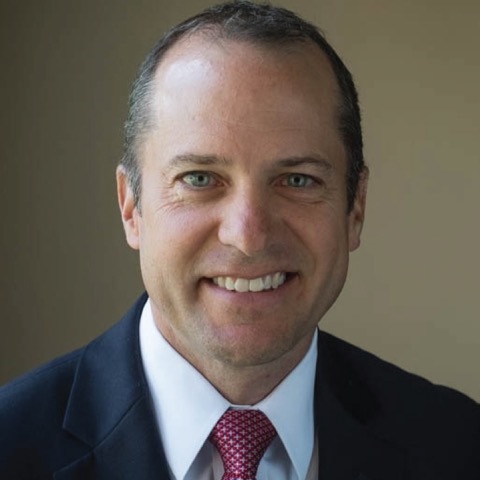
Jason Jackman, CFA, is the President and Chief Investment Officer for Johnson Investment Counsel, Inc. Previously, he was Director of Fixed Income and Institutional Management. Mr. Jackman has been with the firm since 1993. Mr. Jackman is the Investment Committee Chair for the Northern Kentucky University Foundation, and is Finance Chair and board member for Skyward. He is also a member of the Tocqueville Society and Regional Success by Six Leadership Council for the United Way of Greater Cincinnati. Mr. Jackman is also on the board of trustees for the UC Economics Center, the board of governors for The Metropolitan Club and the Endowment Committee for Immanuel United Methodist Church. In this exclusive interview with the Wall Street Transcript, Mr. Jackman sees upside for Oracle (NYSE:ORCL), Adobe (NASDAQ:ADBE) and Microsoft (NASDAQ:MSFT) as they shift their applications to the cloud.
“…As technology companies go through these transitions, investors are often skeptical or concerned that they might cannibalize existing license revenue. So that is indeed the case with Oracle right now as it’s transitioning much of its database business to the cloud, and companies that successfully navigate that transition to the cloud often experience higher multiples as a result.
Mr. Jackman also sees upside in midstream natural gas pipeline securities: “…one area that didn’t perform particularly well was midstream energy master limited partnerships. This is basically a toll-road model where oil and natural gas passes through pipelines, and their revenue streams are based on long-term contracts of the volume of the commodity that flows through the pipes. This area has very good dividend yield of around 7% to 7.5%, and with 3% to 4% distribution growth, the segment appears to be poised for very good results…”
To get the full details on these recommendations and many more, read the entire interview with Jason Jackman, CIO for Johnson Investment Counsel in the Wall Street Transcript.
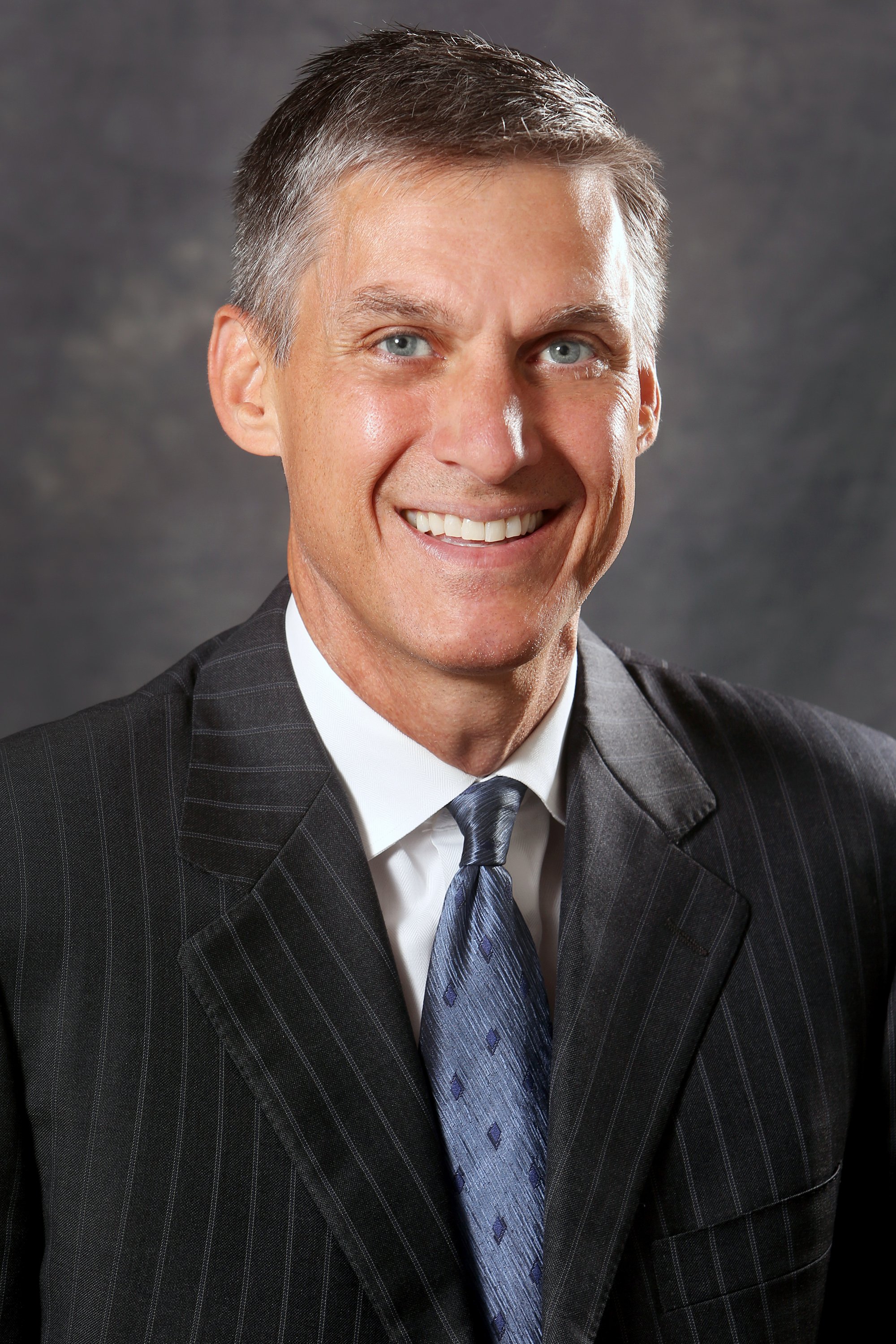
J. Tyler Haahr is Chairman of the board and Chief Executive Officer of Meta Financial Group, Inc. — “Meta Financial” — and MetaBank (NASDAQ:CASH). In this exclusive interview with the Wall Street Transcript, Tyler Haahr details the competitive advantage for his financial institution.
The company includes some interesting financial technology businesses: “…in 2004, we started our payments division, with the biggest part of the division being prepaid, but we also sponsor roughly two-thirds of the white-label ATMs in the country, meaning nonbank locations. So for convenience stores, restaurants, hotels, those kinds of locations, we sponsor roughly two-thirds of those and work with Visa, Mastercard and other banks moving the money. Then, we expanded again in December 2014 when we bought AFS/IBEX, our premium finance division. In 2015 and 2016, we bought our tax processing companies.”
The growth rate for this bank is amazing: “…all of our businesses really have been growing 20%-plus. The retail bank, the premium finance business, the payments business and the tax business have all been growing at well over 20%. ”
A company philosophy supports a lofty goal: “…our goal is financial inclusion for everyone. So since a lot of people don’t qualify for a checking account at a traditional bank, roughly 28% of the population is either unbanked or underbanked, according to a Wall Street Journal article. For products, the traditional prepaid card started with the gift card, but there are also rebate and loyalty cards. And the majority of our prepaid business and the fastest-growing part of the prepaid business is really general purpose reloadable and payroll cards. So for people that otherwise would have to take their check to a check cashier, a payroll card is a great solution…”
The competition is fierce but CEO Tyler Haahr has lot of confidence in his company’s ability to excel in their space. “A lot of people would look at Bank of Internet, Green Dot or The Bancorp particularly in the payment space. With respect to the retail banking segment, there are many small, medium, large and money center banks in our markets. And we partner with and compete with a number of companies in the fintech space as well. So there’s a variety of competitors both big and small in all of our divisions. And we just try to make sure we’re disciplined on what we do, providing the best products and services and continuing to be innovative. That’s how we’re planning to compete.”
To get the complete details on J. Tyler Haahr, Chairman and CEO of MetaBank (NASDAQ:CASH) read the entire interview in the Wall Street Transcript.
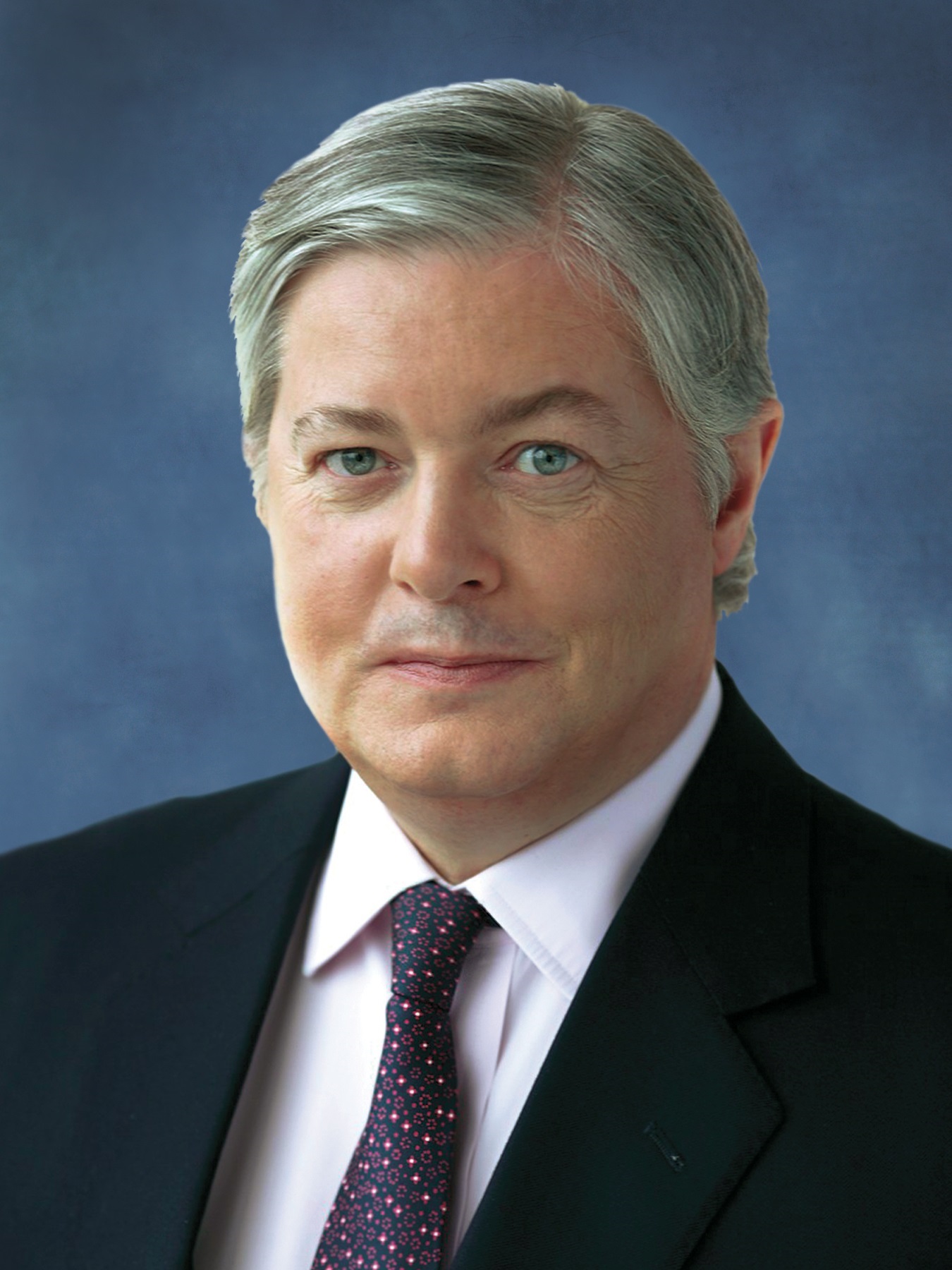
James Morton is the Chief Investment Officer and a Portfolio Manager at Santa Lucia Asset Management Ltd. He has extensive expertise in recovering and small-cap companies, as well as emerging markets. Mr. Morton’s career in the investment industry began in 1992. He is an accomplished author, editor and investment columnist. Mr. Morton holds a degree in law from Trinity Hall, Cambridge University, and an M.A. in third-world economics as well as an MBA from Stanford University. He reveals his detailed methodology for finding stocks in emerging markets in this exclusive interview with the Wall Street Transcript.
His interesting specialty is small cap value stocks in Indonesia. “We are a value equity house based in Singapore. We practice value investing in Asia, even though most investors come to Asia for growth. But we do value, traditional deep value, relative value and high yield equities, which I think is a legitimate variation of value investing…We have an office in Jakarta, which makes us slightly unusual. ”
His deep research into these poorly understood stocks creates a lot of upside. “For investors, outperforming in Indonesia is usually a function of two things: first, identify the right sector and, two, then find the best companies within that sector…the ROE of listed companies is pretty high. It’s estimated to be around 17%. And earnings growth for this year will be one of the highest in the region. Probably India and the Philippines will be higher, but Indonesia looks likely to be around 17%, plus or minus.”
The result is finding stocks that are far from correlated from the developed market. “I would have to say that most people in the villages in Indonesia probably don’t know who the U.S. president is or care for that matter. That answers part of the question. Obviously, what happens in America affects everybody, more than anywhere else. But I would say that for Indonesia, China is the focus, and America isn’t so important.”
Read the entire interview in the Wall Street Transcript for details on which stocks James Morton places into his portfolio.

Amir Arif is an Oil & Gas Analyst in Cormark Securities Inc.’s Institutional Equity Research division. He joined the firm in 2014. Mr. Arif’s career includes previous investment experience with Stifel, Friedman Billings Ramsey, and Waterous Securities, as well as previous engineering experience with Fletcher Challenge, Koch Exploration and Norcen Energy. He received his B.S. in petroleum engineering with distinction from the University of Alberta in 1994 and his MBA in finance from the University of Calgary in 1999. He is a Chartered Financial Analyst, Association for Investment Management and Research, since 1999. In his exclusive interview with the Wall Street Transcript, Mr. Arif sees some bright prospects for Canadian oil and gas producers.
“Right now, when you look at the futures curve on your AECO pricing, it indicates that the situation doesn’t fix itself up for two years, but we think the market will fix itself well before that, and the equities will start reflecting it as soon as we get signs of the AECO market starting to stabilize relative to Henry Hub. Do you want to be in there from an equity perspective even prior to the signal showing up on the commodity side, again, at these levels, given the sentiment, given where the valuations are? There are definitely a handful of names that make a lot of sense to be buying and accumulating at these levels.”
Mr. Arif picks some winners in this sector.
“On the large-cap side, our favorite idea for defensive investors remains CNQ (NYSE:CNQ), and for growth investors, it would be Encana (NYSE:ECA). Then on the midcap side, at current valuations, Seven Gen (TSE:VII) is probably the most compelling opportunity out there right now. Our favorite risk/reward name on the midcap side would be NuVista (TSE:NVA). And then on the small-cap side, on the oily side, both Yangarra (TSE:YGR) and Tamarack (TSE:TVE) make a lot of sense in terms of light oil exposure. I can run through those if you want in terms of the theses.”
To get the complete details on these winning oil and gas production stocks, read the entire interview in the Wall Street Transcript.